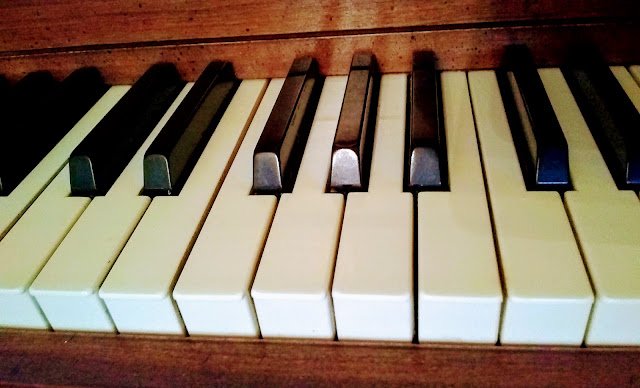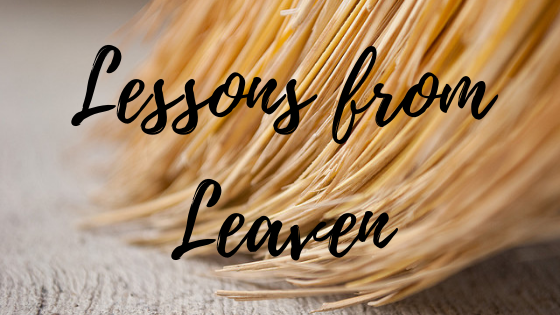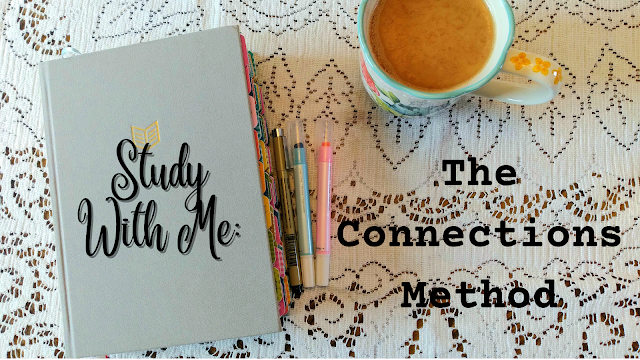Learning to Pray
I am one of those people who always has a song running through my head. Always. Ask me at any time, and I will tell you what song it is at the moment. Songs even invade my dreams, and I always wake up with a song. I'm usually either singing, humming, whistling, or right on the verge of somehow bursting out in song. I have loved to sing as long as I can remember. I have sung solos, in choirs, duets with my husband, and to my babies. Singing has always been a part of my life.
Lately I have gained a new perspective on singing and music. Have you ever thought of music as a form of prayer? In churches, the "worship service" is the music and singing part of the service, and we refer to a type of Christian music as "worship music", but it still never really occurred to me that music is an important part of prayer!
The subject of prayer has been on my mind, and so I've been studying a little bit about it. Prayer is kind of a mystery to me. Is it simply "talking to God"? Maybe, but I think there might be more to it than that. I definitely know there's more to it than just giving God a list of things that you need or want, even if that list includes the needs of others.
The Hebrew word most often used for prayer is "tefillah", and comes from the root word "pallel", which means to judge (oneself), to intercede for oneself or another, to pray, to appeal to justice. I like the Webster's 1828 Dictionary's definition of the English word "prayer": "1. In worship, a solemn address to the Supreme Being, consisting of adoration, or an expression of our sense of God's glorious perfections, confession of our sins, supplication for mercy and forgiveness, intercession for blessings on others, and thanksgiving, or an expression of gratitude to God for his mercies and benefits. A prayer however may consist of a single petition, and it may be extemporaneous, written or printed." And "praise" is defined as: "2. The expression of gratitude for personal favors conferred; a glorifying or extolling." So, according to these definitions, praise is a part of prayer.
There is an entire book of the Bible, made up of 150 chapters, that is entitled "Tehillim" in Hebrew, which means "praise". We call it "Psalms" in English. The Psalms are poetic songs, and they were very important in Temple worship in Biblical times. The Bible and other archaeological and literary sources tell us that the Psalms were sung and played on instruments by the Levites in the Temple to accompany the daily morning and afternoon burnt offerings and the offerings on the Sabbath, the new moon, and all of the festivals. There was a psalm designated for each day of the week. If you look in your Bible at Psalm 92, you will see that it was the one designated for the Sabbath. Psalms 120 through 134 are known as the Psalms of Ascent; fifteen psalms that were sung by the Levites on the fifteen steps that led up to the Court of Israel in the Temple complex. Psalms 113 through 118 are known as the Hallel. These are songs of Thanksgiving that are sung during the festivals and Hanukkah. There was a lot of music going on in the Temple! The Dead Sea Scrolls say that David wrote a total of 4,050 songs! These included a different one to go along with the burnt offering for every day of the year, and also for the Sabbath, new moon, and festivals.
Today, the Psalms are still a big part of worship. They are a huge part of the Siddur, which is the Jewish prayer book that is modeled after the services in the Temple. 74 of the 150 Psalms have been incorporated into the Siddur. The morning prayers begin with Psalms, and contain a Psalm of the day, just like in Temple times. There are Psalms for the Sabbath, the new moon, and the festivals. The Psalms of Ascent and the Hillel are still sung in synagogues today.
This all tells me that songs, specifically the Psalms, are important, and they should definitely be a part of my own prayers!
My husband and I lead a weekly Bible study in our home. We've done this off and on over the past 10 years or so, because we are seventh day Sabbath keepers, and there aren't a whole lot of other worship opportunities on Saturdays where we live. Until recent months, one or both of our daughters have always played the piano or guitar to lead us in some singing at our weekly meetings, but now they both live far away with their husbands, in different parts of the country. I wanted to keep up the music at our meetings, so I decided to learn to play chords on our (very out of tune) piano. I have always been more of a singer than an instrument player, so learning to play has been quite a process! At the beginning I had to make myself practice every day, but after a while I started to really enjoy it! Now I can do an adequate job playing basic chords without too many mistakes for just over 30 songs, and my "repertoire" just keeps expanding as I learn more and more songs. I actually look forward to my practice time now, and I'm so glad I stepped out of my comfort zone to do it, especially now that I understand a little better how important music is. It's prayer!
Dr. Dinah Dye has done a very good video series about prayer called, "Service of the Heart". I highly recommend watching it if you are interested in learning more about prayer.
Lately I have gained a new perspective on singing and music. Have you ever thought of music as a form of prayer? In churches, the "worship service" is the music and singing part of the service, and we refer to a type of Christian music as "worship music", but it still never really occurred to me that music is an important part of prayer!
The subject of prayer has been on my mind, and so I've been studying a little bit about it. Prayer is kind of a mystery to me. Is it simply "talking to God"? Maybe, but I think there might be more to it than that. I definitely know there's more to it than just giving God a list of things that you need or want, even if that list includes the needs of others.
The Hebrew word most often used for prayer is "tefillah", and comes from the root word "pallel", which means to judge (oneself), to intercede for oneself or another, to pray, to appeal to justice. I like the Webster's 1828 Dictionary's definition of the English word "prayer": "1. In worship, a solemn address to the Supreme Being, consisting of adoration, or an expression of our sense of God's glorious perfections, confession of our sins, supplication for mercy and forgiveness, intercession for blessings on others, and thanksgiving, or an expression of gratitude to God for his mercies and benefits. A prayer however may consist of a single petition, and it may be extemporaneous, written or printed." And "praise" is defined as: "2. The expression of gratitude for personal favors conferred; a glorifying or extolling." So, according to these definitions, praise is a part of prayer.
There is an entire book of the Bible, made up of 150 chapters, that is entitled "Tehillim" in Hebrew, which means "praise". We call it "Psalms" in English. The Psalms are poetic songs, and they were very important in Temple worship in Biblical times. The Bible and other archaeological and literary sources tell us that the Psalms were sung and played on instruments by the Levites in the Temple to accompany the daily morning and afternoon burnt offerings and the offerings on the Sabbath, the new moon, and all of the festivals. There was a psalm designated for each day of the week. If you look in your Bible at Psalm 92, you will see that it was the one designated for the Sabbath. Psalms 120 through 134 are known as the Psalms of Ascent; fifteen psalms that were sung by the Levites on the fifteen steps that led up to the Court of Israel in the Temple complex. Psalms 113 through 118 are known as the Hallel. These are songs of Thanksgiving that are sung during the festivals and Hanukkah. There was a lot of music going on in the Temple! The Dead Sea Scrolls say that David wrote a total of 4,050 songs! These included a different one to go along with the burnt offering for every day of the year, and also for the Sabbath, new moon, and festivals.
Today, the Psalms are still a big part of worship. They are a huge part of the Siddur, which is the Jewish prayer book that is modeled after the services in the Temple. 74 of the 150 Psalms have been incorporated into the Siddur. The morning prayers begin with Psalms, and contain a Psalm of the day, just like in Temple times. There are Psalms for the Sabbath, the new moon, and the festivals. The Psalms of Ascent and the Hillel are still sung in synagogues today.
This all tells me that songs, specifically the Psalms, are important, and they should definitely be a part of my own prayers!
My husband and I lead a weekly Bible study in our home. We've done this off and on over the past 10 years or so, because we are seventh day Sabbath keepers, and there aren't a whole lot of other worship opportunities on Saturdays where we live. Until recent months, one or both of our daughters have always played the piano or guitar to lead us in some singing at our weekly meetings, but now they both live far away with their husbands, in different parts of the country. I wanted to keep up the music at our meetings, so I decided to learn to play chords on our (very out of tune) piano. I have always been more of a singer than an instrument player, so learning to play has been quite a process! At the beginning I had to make myself practice every day, but after a while I started to really enjoy it! Now I can do an adequate job playing basic chords without too many mistakes for just over 30 songs, and my "repertoire" just keeps expanding as I learn more and more songs. I actually look forward to my practice time now, and I'm so glad I stepped out of my comfort zone to do it, especially now that I understand a little better how important music is. It's prayer!
Dr. Dinah Dye has done a very good video series about prayer called, "Service of the Heart". I highly recommend watching it if you are interested in learning more about prayer.




Awesome!
ReplyDelete